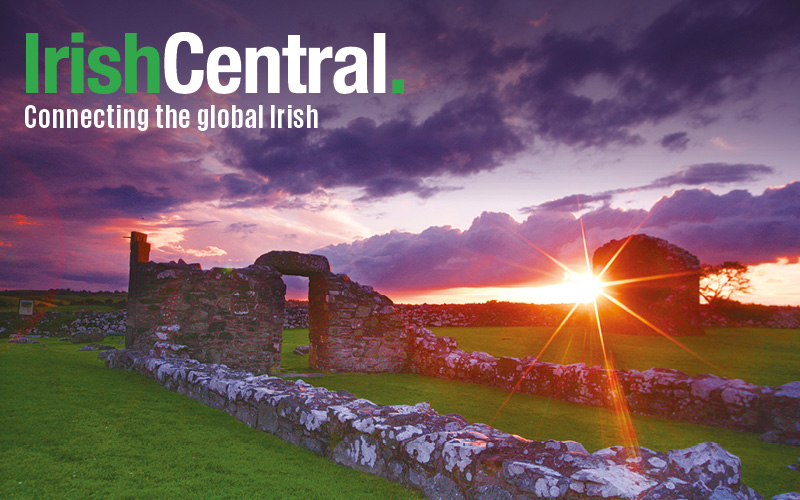Canada-based Irish doctor Eilish Cleary has traveled to Nigeria to join the World Health Organization in the fight against Ebola. She reports that so far, Nigeria is winning.
With all of the challenges Lagos faces, such as poverty, overpopulation, touchy electricity, lack of running water and an overstretched health service, panic ensued when Liberian development consultant Patrick Sawyer collapsed in the Lagos airport last July with symptoms of Ebola.
However, since then, Nigeria has been so successful in dealing with and containing the virus that public health experts are suggesting western governments should be taking a lesson.
According to the Financial Times, Nigeria, which has a population of 170 million, has already quashed the outbreak. It is now just one week short of being clear of a live case for 42 days, which is the period required by the World Health Organization before it can be officially declared Ebola-free.
In an interview with Ireland’s RTE Radio 1, Dr. Cleary, who is a Chief Medical Officer for the Canadian province of New Brunswick, outlines Nigeria’s keys to success in battling Ebola, which include: no shortcuts, being thorough, patient and hopeful, determination and rehydration.
The general mortality rate for Ebola is on the rise, but Dr. Cleary has success stories from Nigerians who have survived the virus.
“There are a number of factors that played into it here,” she explained, speaking from Nigeria. “One, they were able to pick it up quickly and that’s important because as soon as you can get a hold of the first case, then you can prevent the spread.
“I believe the key to their success in containing the spread is that they had a very balanced approach. You have to remember, a communicable disease is something that affects a person, but it also spreads from person to person…in response, you must not only put attention into caring for the people that got sick, but you also have to track down every single one of those contacts, and watch them for 21 days, and then if they get sick, you have to isolate them, and go into a circle of their contacts…it’s almost like detective work.
“Now that’s something that takes a lot of time, resources, and good old fashioned public health work. But there’s no shortcut to it, and that’s what Nigeria did really well.”
Dr. Benjamin Ohiari, director at the clinic where Patrick Sawyer was taken before his death, said that after four of the eleven medical workers involved in caring for Sawyer died from Ebola, Nigeria acted quickly, determined not to let the virus spread.
“An emergency presidential decree enabled officials to access mobile phone records and empowered them to lean on law-enforcement agencies where necessary to track down people at risk. Thereafter, a strict system to monitor potential cases was put in place by the Lagos state government,” the Financial Times reported.
Dr. Eilish Cleary attributes a lot of Nigeria’s success to its swift action and organization - but she said that something often overlooked is the importance of motivation, education, hope, and dedication when it comes to surviving the virus.
“People here are very motivated, highly educated people, and a lot have said to me ‘oh, well we thank God for the Irish – they gave us our education.
“And I think the biggest message of hope that we shouldn’t forget is, people can live through this disease. And I’ve had the opportunity to talk to a number of people who’ve come through Ebola, and they’ve survived, and the reason they believe they survived is that they really wanted to survive – they have a lot of faith.
“I think this is an important message to get out to other countries, because there are probably a lot of people who believe it’s a death sentence.”
In total, twenty Nigerian people were infected with Ebola, twelve of whom survived. Teams of state officials also tracked down over 800 people who had either primary or secondary contact with the Patrick Sawyer case.
Many patients who practiced proper rehydration survived the virus. Survivors, like one of Sawyer’s nurses, credits her survival after two weeks of suffering in isolation to drinking up to five liters of water combined with rehydration solution each day, coupled with a strong will to survive.
Dr. Cleary also notes that Nigeria has a history with the World Health Organization in terms of successfully combating polio, and so putting money and resources into the country to help build up capacity and take on health challenges like Ebola does pay off.
In addition, hundreds of private clinics in Nigeria have been trained to identify Ebola patients and keep them away from the community until they are evacuated to isolation wards for recovery. A social media campaign, websites and helplines have been set up as well, which Dr. Cleary points to as crucial for public awareness.




Comments